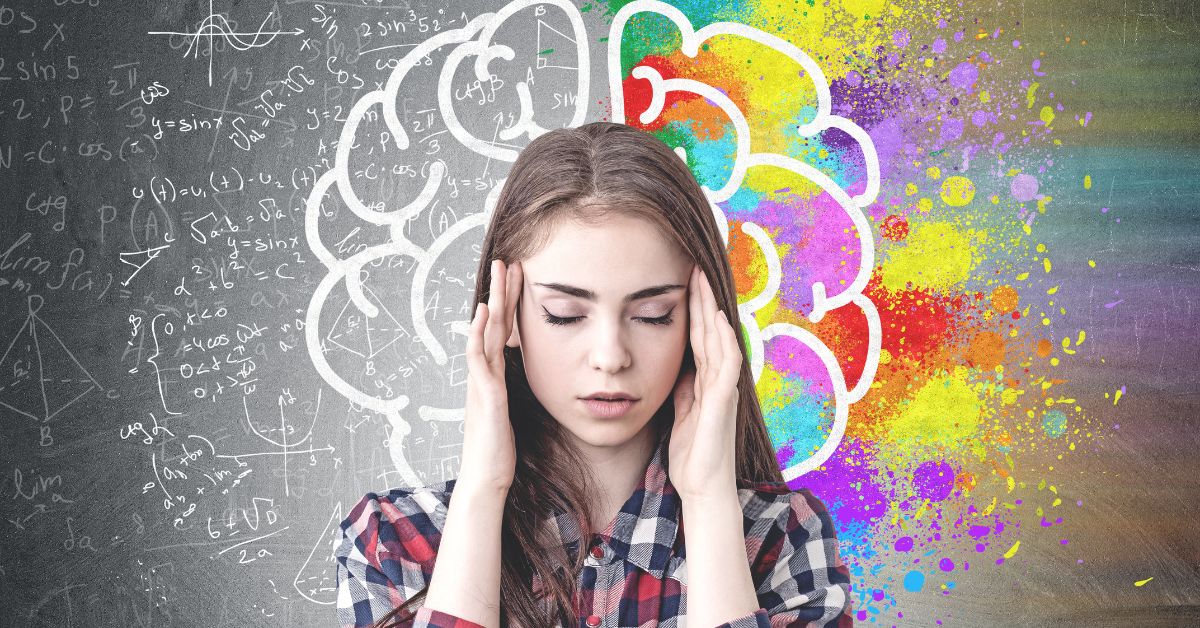Have you ever watched your teenager take their first sip of alcohol? Did you find yourself wondering what it does to their young, developing mind? It’s a sight that can stir a pot full of worry and questions. As a parent, you’re not just seeing your child taste a new beverage. You’re peeking into a potential maze that could impact their brain’s blueprint for years to come.
Alcohol isn’t just an adult’s game; it can rewrite the rules of a teenager’s brain development in ways that might not be obvious at first glance. But what exactly are those changes? How does this common substance influence the complex wiring of a brain that’s still under construction? It’s often a staple at adult gatherings.
It’s time to learn what’s happening inside those heads we love so much—because knowing is the foundation of caring, and caring is where change begins.
Why Is the Adolescent Brain More Vulnerable to Alcohol Effects?
Understanding why teens drink alcohol is the first step toward addressing this issue.
Teen brains are more sensitive to alcohol than adult brains. This is because their brain cells and connections are still forming. Think of it as the difference between adding graffiti to a half-finished painting versus one that’s been long completed. The damage can be more extensive and lasting when the brain’s architecture is still developing.
The Prefrontal Cortex: The Brain’s Command Center
To understand the impact of alcohol on a teenager’s brain, let’s take a closer look at the prefrontal cortex:
- Role in the Brain: This area is responsible for planning complex cognitive behavior. It also controls personality expression, decision-making, and moderating social behavior.
- Developmental Timeline: The prefrontal cortex is one of the last parts of the brain to fully develop. It doesn’t reach its full maturity until the mid-20s.
When alcohol is consumed during these critical years of development, it can significantly influence the brain’s maturation process, potentially leading to:
- Impaired Cognitive Abilities: Difficulty with thinking, memory, and attention tasks.
- Emotional Challenges: Increased risk of mood disorders and anxiety.
- Social Implications: Problems with social interactions and relationships due to impaired judgment and impulse control.
Alcohol’s influence extends beyond cognitive impairment. Often, it leads to emotional disconnection and difficulties in relationships. This is why some suggest that an alcoholic cannot love in the same capacity as a sober individual.
What Happens to the Teen Brain When They Start To Drink Alcohol?

When teenagers start drinking, it’s not just their behavior that changes; their brains do, too. Let’s take a look at the alcohol effects on the developing teen brain. It’s important to know what that might mean for them both now and down the road.
The Impact of Alcohol on the Teenage Brain
It’s important to know that your teenager’s brain isn’t completely developed yet. In this development process, the prefrontal cortex is like the main control room. It’s where all the decisions are made, from what to eat for breakfast to how to react in tricky situations.
Now, when alcohol enters their organism, it can mess up this process. Here’s how alcohol can throw a wrench into the gears of your teenager’s brain development:
- Interferes with Brain Development: Alcohol can disrupt the growth and development of brain cells, especially in the prefrontal cortex.
- Increased Risk of Addiction: Because the teen brain is still developing, it’s more at risk for becoming dependent on alcohol. It’s like the young brain gets used to having this unwanted guest around and starts thinking it needs to have it all the time.
- Mental Health Issues: Drinking can also affect a teen’s mood and mental health. It’s tough enough being a teenager, and adding alcohol to the equation can make things like anxiety and depression more likely.
- Affects Decision-Making and Impulse Control: The prefrontal cortex is still under construction. Alcohol consumption can lead to poor decision-making and the inability to control impulses.
- Long-Term Cognitive Effects: Alcohol can alter the development of the brain in ways that last long into adulthood. This might mean trouble with thinking, learning, and memory later on.
By being aware of the impact of alcohol on the teenage brain and taking proactive steps to mitigate its effects, we can help ensure that our teenagers’ brains are becoming strong and resilient. Discovering effective parenting advice for dealing with teenage drinking is key to guiding your teen through these impressionable years.
Brain Functions Impaired by Teenage Drinking
Alcohol can impair brain functions, such as learning and memory. Teenage drinking can make it harder for young minds to pick up new information or skills. It can also impact their ability to make good decisions, as the parts of the brain that manage these tasks are still growing.
This is important because this is the time in their lives when teens are supposed to be soaking up knowledge like a sponge, getting ready for all the challenges of adulthood.
UPDATED: Discover the 3 life-changing things about addiction I wish I knew years ago
Binge Drinking and How It Affects the Developing Brain

Binge drinking is consuming a lot of alcohol in a short time. For teens, whose brains are highly adaptable, this can lead to a greater risk of developing alcohol use disorders. The behavior can set a pattern that’s hard to break, even as they grow into adulthood.
From Early Alcohol Use to Alcohol Abuse Later in Life
Starting to drink at a young age is like setting off on the wrong foot. The earlier a person starts, the more likely they are to struggle with alcohol later. This is partly because early use can interfere with normal brain development, leading to a reliance on alcohol to manage stress or emotions.
Are the Effects of Alcohol on the Teenage Brain Reversible?
Some effects of alcohol on the brain at this stage can fade over time if drinking stops. But like a stain on a favorite shirt, some marks are hard to remove. The brain is resilient, yet recovery depends on several factors. The amount of alcohol consumed and the individual’s overall health and lifestyle are some of them.
GET: The 3 things that actually "allowed" me to help my son (and regain control again)
How Does Alcohol Consumption Differ Between Adolescents and Adults?
Teenagers often metabolize alcohol differently than adults, and their bodies are still developing. This means that they may become intoxicated at lower levels of consumption.
The impact on their still-maturing brains can be more pronounced.
Long-Term Effects of Teenage Drinking on Brain Chemistry

Long-term heavy drinking during the teen years can change the way the brain functions. Neurotransmitters and brain chemistry are negatively impacted by alcohol.
This can lead to mood and behavior changes. Also increases the risk of developing mental health issues and substance use disorders.
Prevention and Education: Tools for Protecting Your Teen’s Brain
Here’s what can be done to safeguard the developing brains of teens:
- Open Communication: Have honest discussions with your teenager. Explain the effects of alcohol on their brain development.
- Supportive Environment: Creating a supportive family and community environment. It can make a big difference.
- Education: Provide them with information on how alcohol can affect their health, not only in the short term but also in the future.
- Encourage Healthy Habits: Encourage activities that promote brain health. This can include exercise, a balanced diet, and adequate sleep.
For more resources and support, especially for parents of addicted adults, it can be important to reach out to communities and professionals who understand what you’re going through.
We have programs that can help you in learning how to best support your adult child while also taking care of your own well-being.
WATCH: Free, confidential workshop that explains how to "Love Another Way"
How Can We Protect Our Teenagers?

Prevention is like building a fence at the top of a cliff rather than parking an ambulance at the bottom. It’s about creating an environment where teens feel supported and have access to information about the risks of drinking. It also means setting a good example and having open, honest conversations about alcohol use and its consequences.
As a parent, don’t forget that prevention is proactive and multifaceted. It involves not only conversations and examples but also fostering strong connections with our teens. By engaging in shared activities, actively listening to their concerns, and nurturing a sense of self-worth within them, we can empower our young ones to make informed choices.
Frequently Asked Questions About How Does Alcohol Affect the Teenage Brain
At what age does alcohol cause brain damage?
Alcohol can cause brain damage at any age. This is particularly concerning for young people because their brains aren’t fully developed yet. You see, when a person, especially a young one, starts drinking, their brain is at a greater risk. It’s not like there’s a magic number where suddenly it’s safe to start drinking. The human brain keeps maturing into the mid-20s. Introducing alcohol before then can disrupt this process, may lead to lasting effects on memory, coordination, and movement.
How does alcohol affect the brain?
Alcohol harms the brain in several ways, most notably by interfering with communication pathways. It’s like throwing a wrench into the works of a finely tuned machine. Alcohol can mess with your mood and behavior and makes it harder for you to think clearly and move with coordination. Over time, excessive drinking can do some serious damage. It can lead to conditions that stick around, like memory issues or permanent brain damage.
NEW: How to make the shift from "Mom Code" to prioritizing your own well-being
How does alcohol affect a person’s body?
Alcohol impacts a person’s body in a multitude of ways, and it’s not just about the odd hangover. When you drink, alcohol goes straight into your bloodstream, and from there, it travels to every part of your body. It can weaken your immune system, making it easier to get sick, and it can damage your liver, heart, and just about every other organ. Not to mention, it can also lead to weight gain and even increase the risk of cancer. It’s a whole-body experience, and not in a good way.
What age does the brain fully develop?
The brain fully develops around the age of 25, give or take a few years. It’s a gradual process where the brain fine-tunes itself, making all the connections it needs to help you think, feel, and act like a grown-up. It’s important to know what you do in your teens and early twenties. Consuming alcohol can have a big impact on how your brain turns out when it’s finally done cooking.
